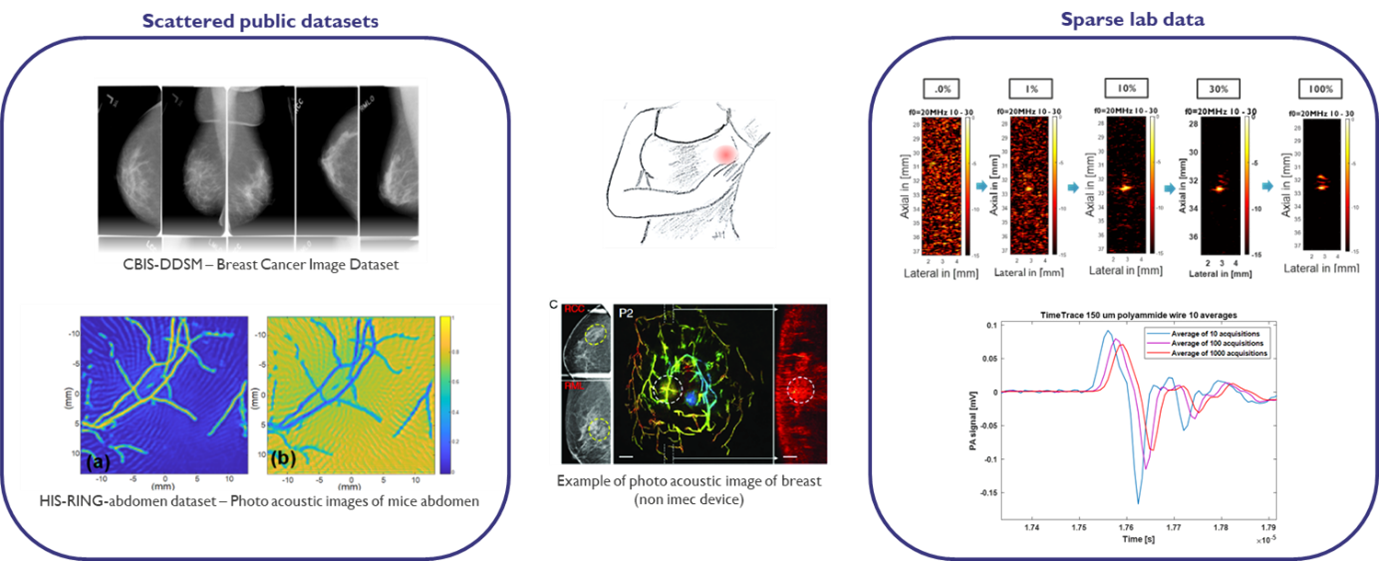Guiding hardware-software co-design for medical AI applications in challenging data environments
Leuven | More than two weeks ago
In the pursuit of harnessing the full potential of artificial intelligence applications in the medical domain, challenges emerge when dealing with noisy, biased, and sparse data. These conditions especially occur in early hardware development. The offered position will put you in the middle of this challenge, where you will combine state of the art machine learning and deep learning techniques to advance medical imaging hardware applications.
In the pursuit of harnessing the full potential of artificial intelligence (AI) applications in the medical domain, challenges emerge when dealing with noisy, biased, and sparse data. These conditions especially occur in early hardware development. To enable model training on the one hand and to provide feedback to the hardware design on the other hand, optimal use of public data and lab data is necessary.
This PhD has two main research questions: 1) How to learn from scattered public datasets similar to the data generated by the hardware device and/or on the foreseen application, and 2) How to transfer this knowledge to the new hardware device and to validate it using the limited available lab data. Possible techniques to explore the first research question are: Domain adaptation, Image translation, Synthetic data generation, etc. Aspects contributing to the second part are: Image quality enhancement, Active learning to optimally determine necessary experiments, Model finetuning, Unsupervised learning, etc.
Research will be conducted on two medical imaging applications within the medical domain to ensure generalisability and validation of research findings. Possible applications are: 1) Photo acoustic imaging to detect breast cancer, and 2) Multimodal imaging of the eye to detect eye diseases. These applications are not final yet and can be subject to change.
The PhD student will work within the AI&Data team at imec that supports hardware-software co-design with data analysis and machine learning modelling. The PhD student will be active on one or two overarching medical imaging hardware project(s) and will be in contact with the internal teams contributing to this.

Our ideal candidate for this position has the following skills:
-
You have a master’s degree in computer science, artificial intelligence, mathematics, civil engineering or biomedical engineering.
-
You have a good background in machine learning, deep learning and/or computer vision
-
You have strong programming skills, preferably in Python.
-
You are able to plan and carry out your tasks in an independent way.
-
You have strong analytical skills to interpret the obtained research results.
-
You are a responsible, communicative and flexible person.
-
You are a team player.
Required background: Master’s degree in computer science, artificial intelligence, mathematics, civil engineering or biomedical engineering. You have a good background in machine learning, deep learning and/or computer vision
Type of work: Literature study, modelling, algorithmic and system design, experimentation
Supervisor: Steven Latré
Co-supervisor: Tom De Schepper
Daily advisor: Nele Gerrits, Siri Willems
The reference code for this position is 2024-089. Mention this reference code on your application form.
